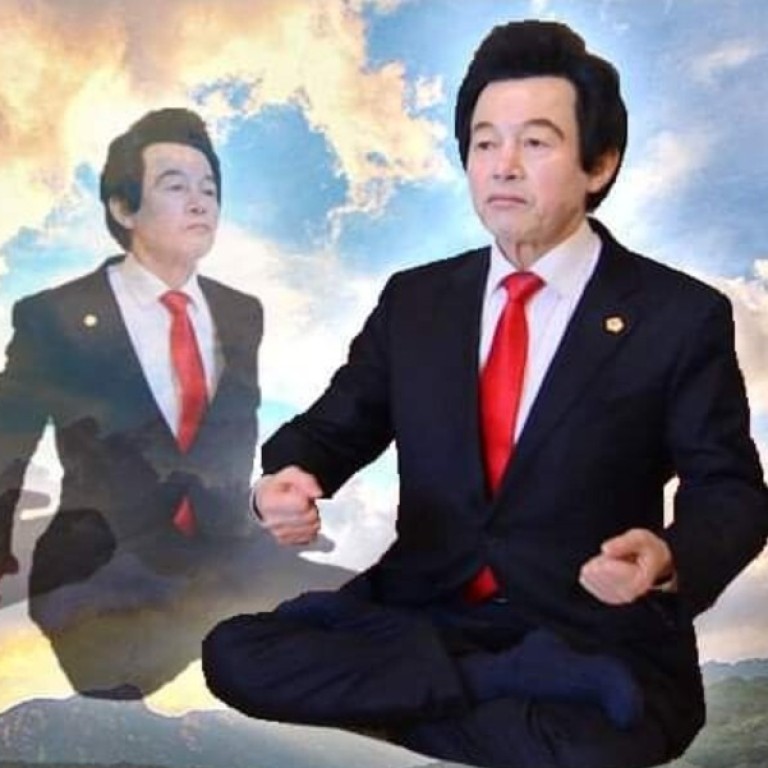
South Korea’s next president? Meet Heo Kyung-young, the ‘levitating’ mystic who claims an IQ of 430 and is offering voters US$85,000
- Heo Kyung-young not only claims to be able to levitate and work miracles, he’s hoping to be elected the next president of South Korea
- His eye-popping claims have made him the subject of ridicule, but his more down-to-earth targeting of corrupt politicians and the infamous Suneung college entrance exam have fans calling him a saviour of the working class
With his claims of supernatural powers and an IQ of 430, abnormally white skin and a perfectly coiffured hairdo that belies his 71 years, Heo Kyung-young is a natural target for internet memes.
Some of the most popular show him levitating (one of his self-claimed abilities), showing off his flexibility with a high kick, smiling alongside Donald Trump, and imploring observers to “look into my eyes”.
Still, this time around, Heo thinks he’s onto a winner with his key pledge: to hand out 100 million won (US$85,000) to every citizen above the age of 18 along with a 1.5 million won (US$1,270) monthly bonus.
He made the promise while announcing his election bid at an event on August 18 at the Haengju Mountain Fortress in the city of Goyang, the site of a clash with the Japanese military in 1593.
With characteristic flamboyance, Heo arrived at the event riding a white horse and in wartime armour paying homage to the Admiral Yi Sun-sin – famed for beating the mighty Japanese navy in the 1500s – promising his adoring fans that he would bring “revolution” to the country.
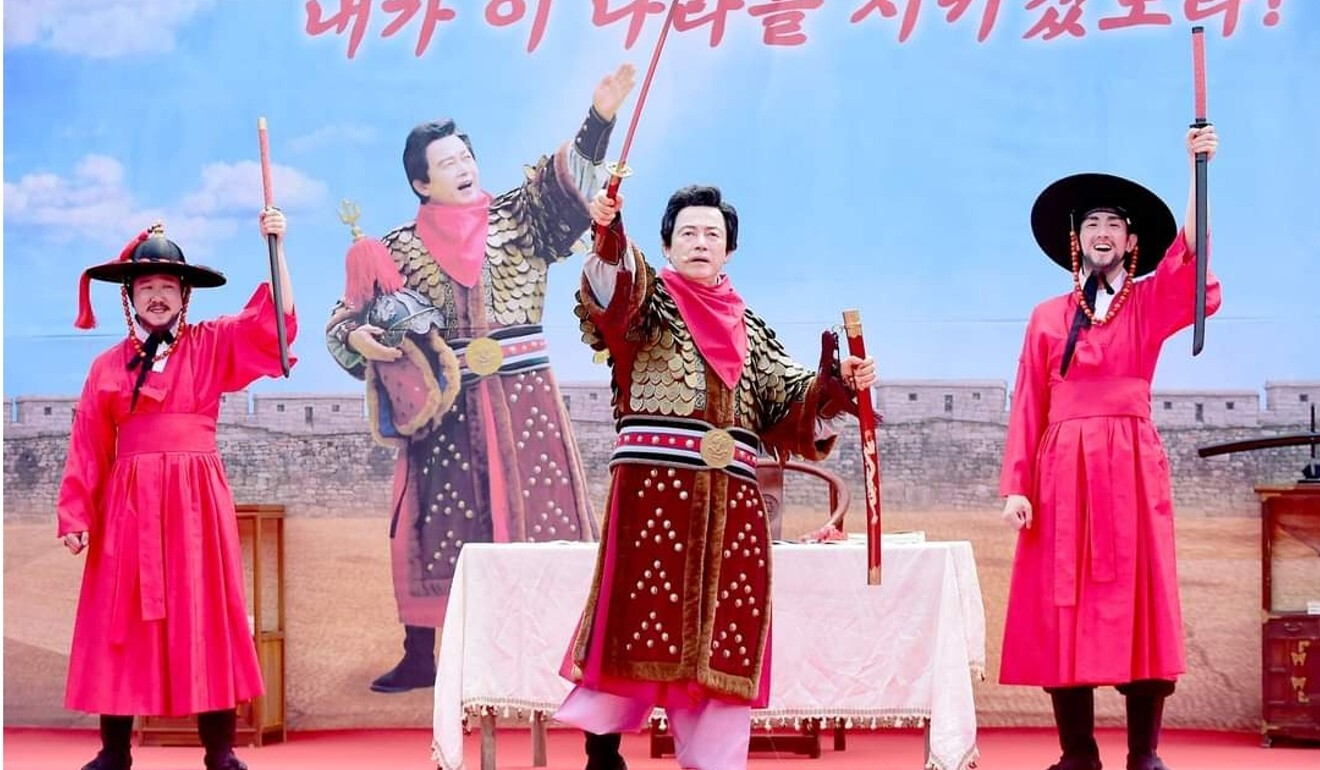
Perhaps not surprisingly Heo is not among the favourites to win the election – those are Governor of Gyeonggi Province Lee Jae-myeong, for the liberals, and former Prosecutor General Yoon Seok-yul, for the conservates – yet he is widely seen as one of the most entertaining candidates and given the attention his eye-catching claims receive on both social and traditional media his campaigning is not entirely without resonance.
“It’s not that we don’t have a lot of money in this country, it’s that we have a lot of robbers,” runs one of his slogans. The “robbers” the slogan refers to are corrupt politicians – and Heo says he has “come to catch them”.
Among his “33 pledges” is one to make membership of the National Assembly legislature an unpaid and honorary position. He also vows to cut the number of seats from 300 to 100.
In a country where the public has long grown weary of its politicians – the now disgraced ex-president Park that Heo once ran against is herself now serving a 25-year term for corruption – not all of Heo’s pledges will be so easy for his rivals to dismiss.
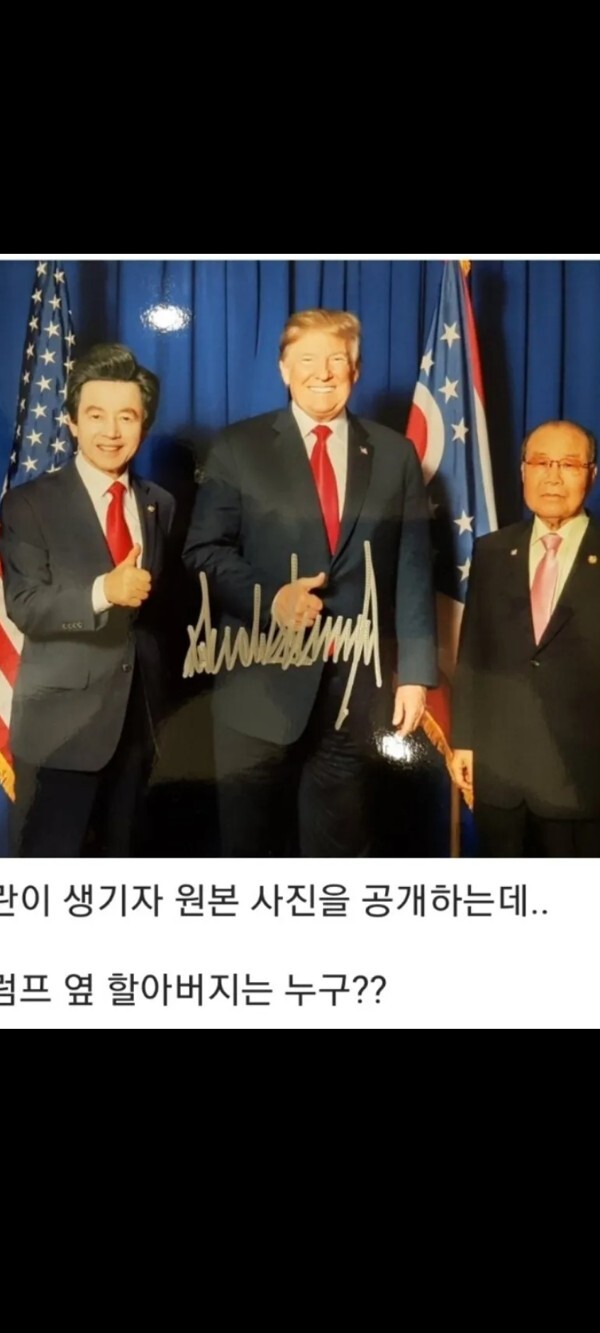
Working class saviour
Regardless of how outlandish Heo may seem to the masses, there are some who see him as a saviour of the working class in a country where housing has become out of reach for all but the few due to historically high prices.
Against this background, some see Heo as one of the few politicians prepared to stand up for the under-represented and underprivileged.
Also among his “33 pledges” are promises of one-off payments of 100 million won to newlyweds, monthly 700,000 won pay cheques for the elderly and, for the youth, an end to mandatory military service and the infamous nine-hour Suneung college entrance exam on which all major aspects of life – from income to job and marriage prospects – depend.
Kim, a taxi driver in Busan who is an enthusiastic fan of Heo, explained his appeal: “All of our current politicians come from rich families and prestigious universities while government officials have fat salaries.
South Korean politicians dial up attacks on Moon Jae-in’s US-China balancing act,
“These people don’t know what it feels like to be in the working class and to shed tears because you don’t have enough money to take care of your family.”
Kim tells his passengers that Heo is the “only hope for the working class” and the “only genius among the corrupt, elitist politicians”.
Among the anecdotes Kim offers is how professors and doctors from world-class institutions have, supposedly, been amazed by Heo while visiting his 44,000 square metre estate and headquarters known as his “Sky Palace” in Yangju, a rural city north of Seoul.
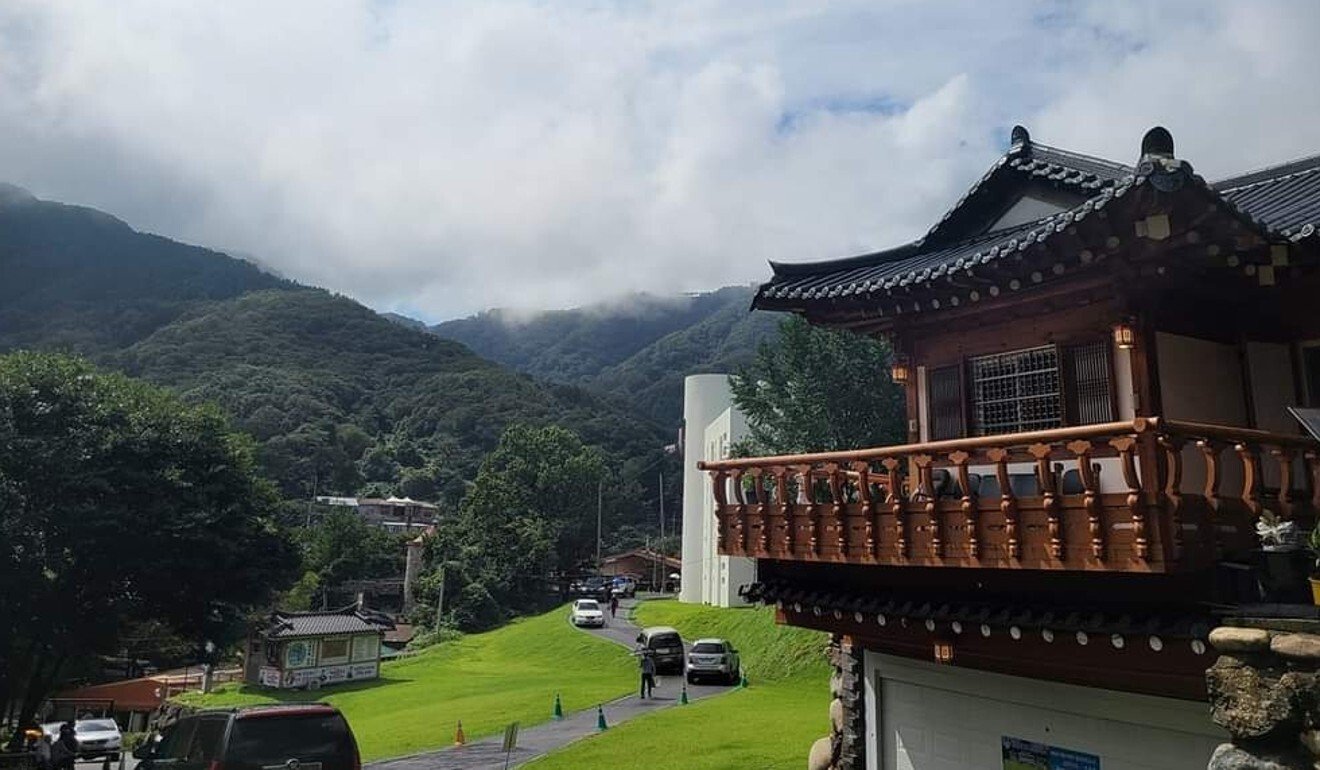
“If you see his YouTube videos, you can see CCTV footage of him healing a cripple, making a woman lose 30kg, and explaining how he was the key player in Samsung’s rise as a world leader in semiconductors,” Kim said.
“And I believe he will eventually bring world peace once he becomes recognised as a global leader.”
Another thing that makes Heo stand out is his availability.
Supporters can visit him in his “Sky Palace” in Yangju. Visitors, some of whom come from as far as the United States, pay 20,000 won (US$17) on weekdays and 100,000 won on weekends to hear lectures that last 20 to 30 minutes. Those wishing to stay can stump up 200,000 won for one night or 1 million won for five nights.
At present, there are about 100 to 150 visitors everyday, down from about 500 before the pandemic. Major donors, who are known as “archangels”, have been known to make donations ranging from 1 million won to 100 million won.
Partly as a consequence of this, Heo is expected to be the richest candidate in the presidential race. The Chosun Ilbo newspaper has estimated his total worth at 36.4 billion won (US$30.5 million).
Heo also comes from a rich family.
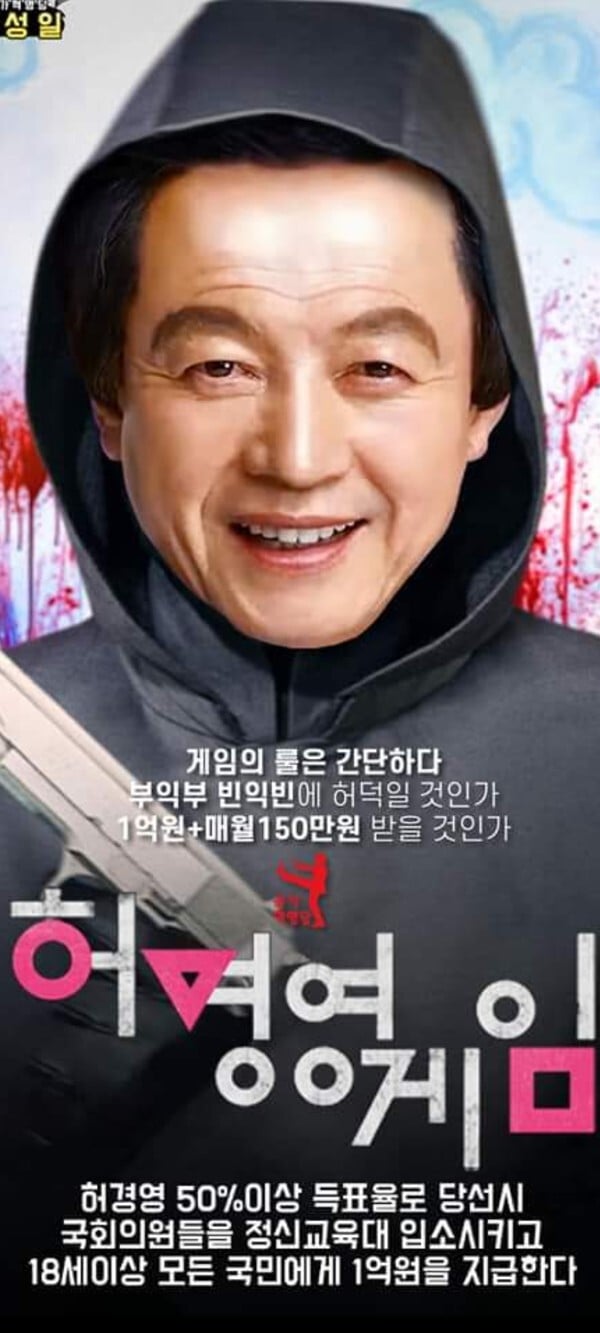
One of the many orphan babies after the Korean war, Heo was adopted by a chaebol, or an extremely wealthy family that owns a large industrial corporation, and inherited a large chunk of his fortune.
Despite the well-off background, Heo’s claim to be a hero to the working class has also been burnished by his record of fighting in the Vietnam war, though as yet it has down little to help him win office. Heo has been trying to win election at both state and national levels since the 1990s without success.
Hwang Jang-su, a political commentator on YouTube with 500,000 subscribers, saw nothing heroic about Heo’s political journey.
Inside the schools catering to North Korean defectors
“It makes sense that people can be attracted to his populist ideas due to the economic situation of the country,” Hwang said. “But only populism that’s serious should be accepted in the political arena. We don’t have room for populism that’s fuelled by entertainment.”
However, while Hwang poured scorn on Heo’s pledged handouts, he acknowledged that economic issues such as housing and employment would be at the front of voters’ minds come election time, as would youth issues such as the college entrance system Heo has targeted.
Heo might be floating in the clouds in the memes, but at least some of his ideas are rooted in more earthly concerns.

